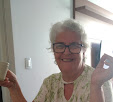ONE
O'CLOCK JUMP
BENNY
GOODMAN
SONGWRITER: COUNT BASIE; Eddie Durham & Buster Smith
COUNTRY: U, S. A.
ALBUM: COUNT BASIE
LABEL: DECCA RECORDS
GENRE: INSTRUMENTAL
YEAR: 1937
Benjamin David Goodman (May 30, 1909 – June
13, 1986) was an American jazz clarinetist and bandleader known as the
"King of Swing".
In the mid-1930s, Goodman led one of the most
popular musical groups in the United States. His concert at Carnegie Hall in New York City on January 16, 1938, is described by critic Bruce
Eder as "the single most important jazz or popular music concert in
history: jazz's 'coming out' party to the world of 'respectable' music."
Goodman's
bands started the careers of many jazz musicians. During an era of racial
segregation, he led one of the first integrated jazz groups. He
performed nearly to the end of his life while exploring an interest in classical music.
"One O'Clock Jump" is a jazz standard, a 12-bar blues instrumental, written
by Count Basie in 1937.
The melody derived from band members'
riffs—Basie rarely wrote down musical ideas, so Eddie Durham and Buster Smith helped
him crystallize his ideas. The original 1937 recording of the tune by Basie and
his band is noted for the saxophone work of Herschel Evans and Lester Young, trumpet
by Buck Clayton, Walter Page on bass,
and Basie himself on piano. The song is typical of Basie's Early riff style.
The
instrumentation is based on "head
arrangements" where each section makes up their part based on
what the other sections are playing. Individuals take turns improvising over
the top of the entire sound. Basie recorded "One O'Clock
Jump" several times after the original performance for Decca in 1937, for Columbia in 1942
and 1950 and on a number of occasions in the fifties. "One O'Clock
Jump" became the theme song of the Count Basie
Orchestra. They used it to close each of their concerts for the next
half century. It was reportedly titled "Blue Ball" at first but a
radio announcer feared that title was too risqué.







0 comentários:
Postar um comentário